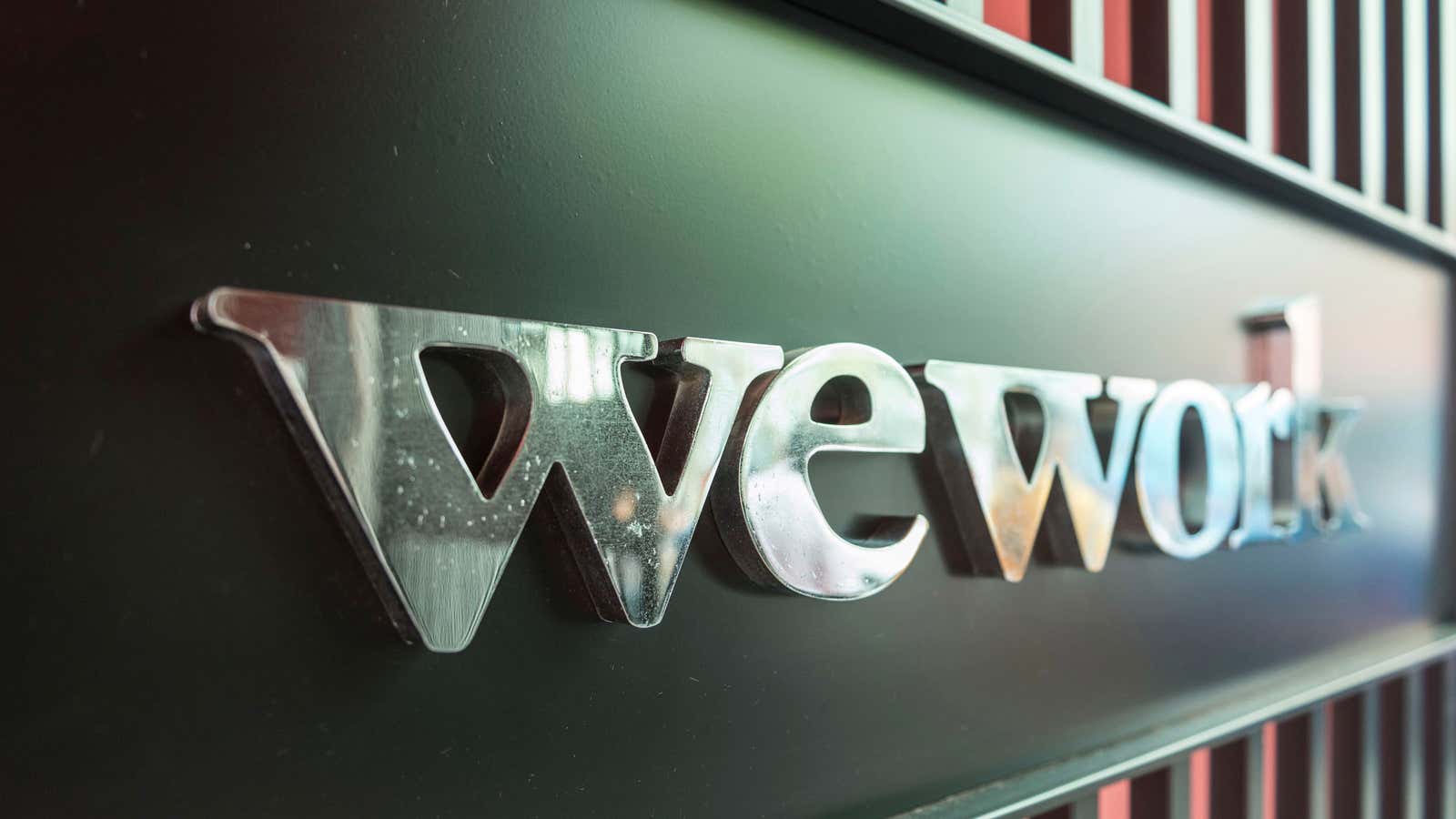WeWork, the fast-growing co-working startup, is asking the bond markets for money, and so let slip some previously secret financial details. Its numbers, as reported by Bloomberg and the Wall Street Journal, show a company with staggering ambitions and some big bills to pay.
WeWork’s business model is to lease office space, fix it up to create a community feel, and sublease it by the day or month to freelancers or small businesses. To fuel its global expansion plans, it’s committed to renting 14 million square feet of office space around the world—a small city’s worth of commercial square footage, and has signed leases that will require it to pay $18 billion in rent over the next decades.
All that space is to accommodate WeWork’s soaring membership, which exploded from 7,000 members four years ago to 220,000 as of March 1. The growth has come at a cost. The company’s sales and marketing expenses tripled to $139 million between 2016 and 2017, rising to 16% of its $866 million in annual revenue.
Running WeWork is a costly undertaking, and the company is taking an Amazon-like approach to spending, investing heavily on growth in the hopes that profits will follow. Along with the money it spends on rent, office renovations, and free coffee, WeWork is also adding gyms and schools, and hoovering up other companies with startling speed. As a result, costs more than doubled last year, to $1.8 billion.
To reconcile its extreme spending, WeWork is applying its innovative approach to business to its accounting, and invented a new measure it calls “community adjusted ebitda,” Unlike plain-vanilla ebitda, or earnings before interest, taxes, depreciation and amortization, WeWork’s community adjusted ebidta subtracts out not just things like taxes, but also ordinary expenses for things like marketing, design, and administration, according to the Wall Street Journal. Perhaps not surprisingly, by those metrics, WeWork turned a profit last year.“I’ve never seen the phrase ‘community adjusted ebitda’ in my life,” Adam Cohen, the founder of bond research company Covenant Review, told the Journal.
WeWork, which is valued at $20 billion by SoftBank, is asking the bond markets for $500 million. Ultimately, it will be up to bond investors to decide if WeWork can turn fictional earnings into actual profit.
Update: WeWork announced that it raised more than $700 million in the bond offering.
